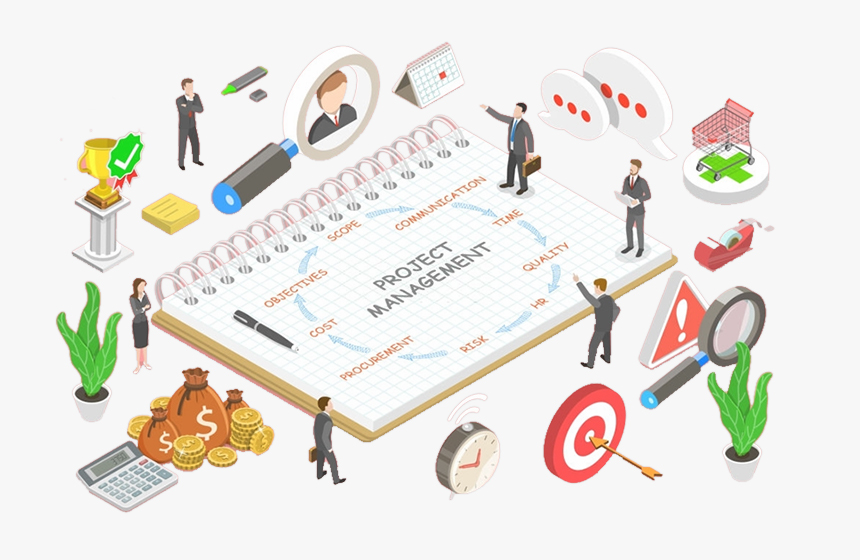Localization project management is one of the jobs that does not require a high-level skill set, but experience and the right expertise. Managing projects is hard only if you do not know what you are doing in the long run. Each project is different. They have different resources and budgets, to begin with. When a client outsources any project to the service providers, it becomes necessary for the team to do their best.
In the case of localization projects, things can be more complicated. Why? The language change and conversion of various topics is not an easy feat by any means. Let’s say you are interested in providing e-books about gaming in 10 different languages. For this, you will need thorough planning and expert translators with a highly professional project manager.
But is it possible to remain at the top of the game? You need to constantly monitor the project’s progress to ensure you are moving in the right direction.
Is localization project management challenging? Yes.
What can be the most challenging factor about any project? Is it to assign tasks? Or meet the stakeholder’s expectations? Or something as simple as juggling through the errors?
Whichever challenge the project manager might face, it is not easy to take care of it. But, with consistency and certain factors, they can overcome the problems.
Sometimes even with the availability of various resources, a project manager faces challenges that need to be taken care of. So one must be ready for the unexpected outcomes, despite how good your planning might be.
Keeping this point in mind, the following are some of the challenges alongside their remedies that can help the project manager over time.
1. Scope Creep
One of the most natural and expected challenges in any project is scope creep. When clients are not clear about their goals, it can be problematic. For instance, if e-books lack the guidelines for e-learners in the local language, it can cause a lot of problems.
Clients with unprocessed and vague requirements make a project more difficult to handle. Constant changes would be required, which would disrupt the project schedule. Limited scope is the biggest drawback for any project. Therefore, you need to discuss all aspects to ensure that the client is clear about what they have in mind.
The Solution:
Focus on proactive engagement with the clients. During the planning phase of any project, learn about what the client really wants from the team. Understand their expectations. Even brainstorming can help a lot in this matter.
Plan according to the available resources and skills that you will use during the project life-cycle. Also, discuss the points you might feel are lacking and need to be discussed in more detail. It will give you a clear path to plan accordingly.
2. Zero Communication
Scope creep often takes place due to zero communication between clients and the localization project management team.
It may happen that clients are unavailable for the orientation meeting. It can complicate things for the project manager. The majority of people believe that lack of communication is one of the biggest issues in a project.
It can affect teamwork, and work consistency and even create conflicts among team members.
The Solution:
A localization project manager can find a steady solution by collaborating with the team members in case of the unavailability of the client’s response. However, the use of project management software also helps clients and teams to communicate on time.
Such software offers work transparency, no miscommunication, and accountability for the work done. Plus, you can assign tasks rather easily, keep track of team members, and keep in touch with clients via email.
3. Limited Success Criteria
Clarity can become questionable in a project when a chain of tasks is broken. It means a lack of clear goals, but also it will create several problems at the managerial level.
Projects can fail due to a lack of project planning. So you need to identify the goals that will help you reach your project completion right on the appointed turnaround time. Project managers should use their tactical skill management to ensure they are right on the schedule.
For instance, a group of translators may not be able to complete the project in case the software hangs or if the translator gets sick. Would the work stop? Not that it’s supposed to but with zero strategies in place, it might get delayed.
The Solution:
Have you ever heard about SMART goals? Go for it. Such goals always work in the favor of the project manager. Also, if you are looking to overcome the localization project management barriers, opting for such goals will prove efficient and fill in the gaps where errors might occur.
You need to keep in mind that successful completion of the project relies on the goals clarity, but also the strategy you use to avoid problems. It’s best to write down the goals, share them with the rest of the team players and clients as well. Document it all and cross-check it one by one.
4. Budget Limitations
Every project is entitled to resources that are vital to use. During the planning process, one must keep the budgeting issues in mind. Small businesses may often have trouble allocating resources out of their reach so they have to improvise.
For instance, manufacturing may cost more if the right raw materials are not used and are bought at a higher rate. Will it disturb the budget for the entire project? Yes!
The client and project manager need to focus on cost management. Sometimes despite their discussions, clients fall short of the cash, which creates hurdles in the middle of the project. A project manager needs to come up with a better option.
The Solution:
Making realistic assumptions is critical in this matter. Instead of opting for higher budgeting procedures, one must make practical assumptions. During the planning, one must cover the points “in case the budget falls short”.
They can execute certain answers for it. Like using online software to maintain the accountancy problems, outsourcing the translators if need be, following up payments in installments, and so on.
5. Lack of Sufficient Skill Set
A chain is only as strong as there is no weak link found. In the case of project teams, every skill matters. To ensure high performance, the project manager is highly dependent on the skills of the team members.
It is important to create an ideal environment where team members can execute the best of their abilities. When a project manager is not communicating with the team and pressurizing them into completing the deadline… then do you think it will result in effective results? Probably not.
As a project manager, you need to assign tasks according to the skill set. Or get ready to face errors, lack of judgment calls, and mismanagement.
The Solution:
To decide, which team member is best for a certain task, always take an evaluation. Dig into the former projects and see which team members make up the most desirable team for the project. Their expertise, experience, language skills, and adaptability for the project are just a few important factors you need to consider.
With human skills, they also provide adequate resources like software, backups, and documents so that the team members have everything they need to fulfill the goals.
6. Zero Risk Management
Does a project manager have the foresight to the “what if” situations? Absolutely. There’s always a chance that something might not add up. What to do then?
In such a case, the project manager should have a contingency plan (made during the planning process). No matter how critically you plan the project, it hardly ever stays on track for several external factors. Since variables are involved, unlimited possibilities occur that can affect the project’s success.
The Solution:
Risk management can make anyone sweat. Project managers must have adaptive skills to prevent the situation from falling out of control.
For instance, if a big chunk of translation goes missing from the document, then they need to scan the tools for the user history to find the lost piece of information. In case it is completely lost, the project manager can divide the tasks or assign tasks to another remote team (plan B).
The contingency plan must cover all aspects of scenarios that could go wrong. Likewise, the use of a robust translation management system can be of great help.
7. No Accountability
Every person, including the project manager, is accountable for their responsibilities. A team only performs well when they feel responsible for their work. It might happen that a team member is lagging in doing their job, which will affect the project’s outcome.
All tasks are codependent on one another, therefore you need to keep an eye on the weak links and be ready to solve the arising errors.
The Solution:
An effective project manager will assign the tasks to the right person. They will ensure team members and common goals that result in the completion of the project.
The use of project tools is compulsory to avoid any grievances related to tasks. It will allow each member to perform their tasks diligently, and project managers can keep track of the task completion as well. Hence, tracking is the key to ensuring high performance.
8. Limited Engagement
Are stakeholders not as keen on the project as they should be?
It falls on a project manager’s shoulder to ensure that all stakeholders are on the same page. Everyone must have a clear objective in mind about their expectation from the project. In the case of an uninvolved client, you still will need to keep them updated, or it will cause you problems from the customer’s end.
To ensure the project is completed on time, customer involvement must be taken seriously, even if they are unavailable for a short time.
The Solution:
Using the right CMS tool allows you to keep the client updated about the project’s progress. In the long run, you can send email notifications that inform them about the tasks. It will remove any chance of miscommunication that otherwise may occur.
Also, do invite them to be part of the planning. It is important to keep the internal and external stakeholders on the same page in the initial stage. So that when concerns are raised about a certain point it can be taken care of.
Why You Need a Localization Project Management System
Project management is not as easy as some may think. It requires skills, patience, and perseverance to ensure quality success. You have to constantly analyze the outcomes. So if you are starting a translation project, you need to be super careful about whom you hire and the tasks performed to reach the goal.
There’s a whole lot more to project management than just some files. Therefore, one needs to hire a team of experts to do the right job and the project manager must be hired with the required expertise.
Once each challenge is focused and dealt with, only then you can help project management in a successful manner.



